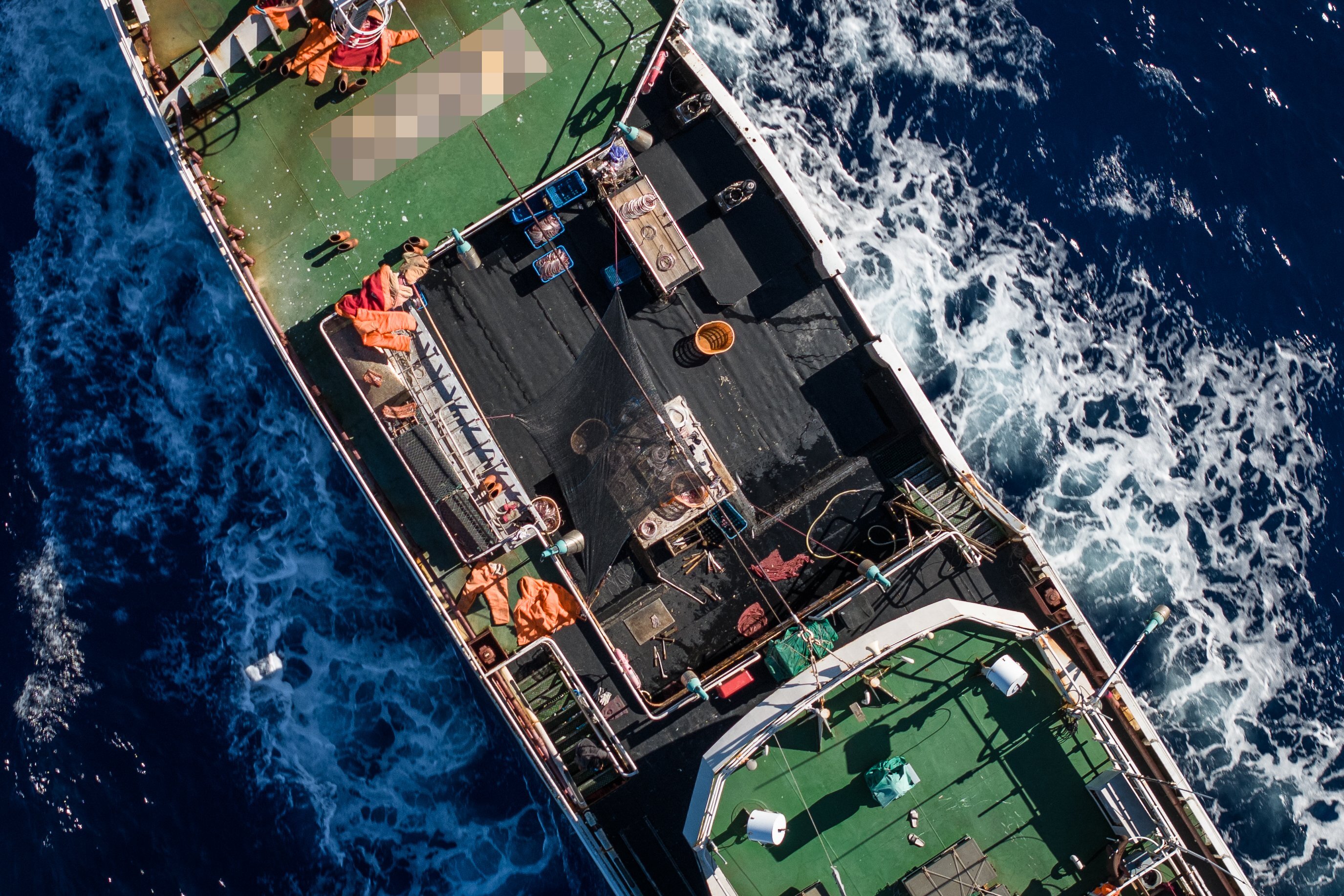
New investigation exposes human rights abuses and ecological crisis in the Southwest Atlantic squid fishery
Hundreds of distant-water vessels are plundering squid populations in the Southwest Atlantic, driving a keystone species towards collapse and exposing workers to horrific abuses, according to a new investigation and film from the Environmental Justice Foundation (EJF).
Each year, as Argentine shortfin squid migrate out of Argentina’s waters, fleets of industrial jigging vessels descend on the high seas just beyond the national boundary, an area known as Mile 201. The fleet is so vast its lights can be seen from space. EJF’s research reveals that between 2019 and 2024, fishing hours by Chinese squid vessels in the region increased by 85%, even as landings showed alarming signs of decline.
The Argentine shortfin squid is a cornerstone of the Southwest Atlantic ecosystem and economy. As one of the few species occupying an intermediate position in the regional food chain, it sustains dolphins, seals, whales, seabirds and commercially valuable fish such as hake and tuna, while generating hundreds of millions of dollars in revenue for Argentina.
Yet, with next to no regulations in place, the exploitation of this fishery is almost completely uncontrolled, putting the entire ecosystem at risk. It provided 12.2% of the global squid catch in 2023, and fishing pressure in the unregulated high seas fishery is over four times greater than within the adjacent regulated Argentine waters.
“Without urgent action, we are heading for disaster,” said Steve Trent, CEO and Founder of the Environmental Justice Foundation. “Overfishing and climate breakdown are placing enormous pressure on this keystone species, while those responsible - primarily from China - commit shocking human rights abuses with impunity. A collapse could happen extremely rapidly, triggering cascading impacts on marine life. Governments must act now to bring regulation, transparency and accountability to this lawless fishery.”
EJF’s investigation details extensive human rights abuses aboard squid vessels. Interviews with Indonesian and Filipino crew revealed violence, intimidation, excessive working hours and wage deductions, with almost two-thirds of Chinese squid vessels linked to deaths or physical assaults on board. Crew also reported illegal and cruel targeting of vulnerable wildlife, including shark finning and the deliberate killing of marine mammals such as South American fur seals.
The lack of oversight means products linked to these abuses may be entering major markets, including the EU, North America and the UK. EJF is calling for urgent regional and international collaboration to:
Establish science-based catch limits and monitoring for squid in the Southwest Atlantic.
End the use of forced labour and ensure full traceability of seafood supply chains.
Strengthen port controls and ban imports linked to illegal or abusive fishing practices.
“Squid are vital to ocean health and to the people who depend on the sea for food and livelihoods,” Trent added. “Governments must work together to protect them, or risk a catastrophe that will reverberate far beyond these waters. First and foremost, they must endorse and implement the Global Charter for Fisheries Transparency, a set of low- or no-cost actions that any government can take to drive progress towards legal, ethical and sustainable fisheries.”
ENDS
Notes to editors
Read the investigation here and watch the film here.
About EJF
Our work to secure environmental justice aims to protect our global climate, ocean, forests, wetlands, wildlife and defend the fundamental human right to a secure natural environment, recognising that all other rights are contingent on this. EJF works internationally to inform policy and drive systemic, durable reforms to protect our environment and defend human rights. We investigate and expose abuses and support environmental defenders, Indigenous peoples, communities, and independent journalists on the frontlines of environmental injustice. Our campaigns aim to secure peaceful, equitable and sustainable futures. Our investigators, researchers, filmmakers, and campaigners work with grassroots partners and environmental defenders across the globe. For more information or to organise an interview with one of our team, please contact media@ejfoundation.org.
SIGN UP FOR OUR EMAILS AND STAY UP TO DATE WITH EJF

